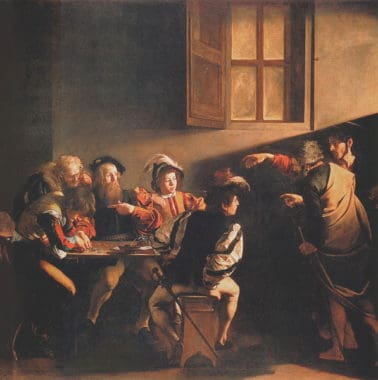Dear Father John, since I have been very exposed to the modern self-help movement that tells us God’s love or Christ’s love is unconditional, how do we explain judgment of others? If he loves us all equally, why do we need to pray, be virtuous or even religious? If we are all flawed humans (some worse than others ) and we are told to love ourselves regardless, what could possibly be the motivation for our civilization to change? Thank you.
This is an interesting question – it shows that you are thinking deeply about our faith. Blessed be God for that! So, why do we need to strive for change (individually and collectively), if we are already loved unconditionally by God?
Responding to God
In Christian spirituality, the motivation to change – to grow in virtue, to seek spiritual maturity,  to become more and more like Christ and the saints – always comes as a response to experiencing God’s love. We discover that we are loved by God, and that he invites us to walk with him along a path that will lead to our fulfillment. Having experienced his love, we are convinced of his goodness and wisdom, and we want to grow closer and closer to him (all love draws us to greater intimacy). And so, when he gives us a chance to come closer to him by accepting his invitation, we take it. God didn’t create us as finished products; this is one of the curious things about human nature. He created us, unlike all the creatures in the visible universe, with freedom, and freedom is the potential to become what we were created to be through the free gift of ourselves to God, through authentic love. But since God is the eternal initiator, our love is always a response to an experience of love. The Catechism of the Catholic Church (CCC) points this out in the context of Christian prayer:
to become more and more like Christ and the saints – always comes as a response to experiencing God’s love. We discover that we are loved by God, and that he invites us to walk with him along a path that will lead to our fulfillment. Having experienced his love, we are convinced of his goodness and wisdom, and we want to grow closer and closer to him (all love draws us to greater intimacy). And so, when he gives us a chance to come closer to him by accepting his invitation, we take it. God didn’t create us as finished products; this is one of the curious things about human nature. He created us, unlike all the creatures in the visible universe, with freedom, and freedom is the potential to become what we were created to be through the free gift of ourselves to God, through authentic love. But since God is the eternal initiator, our love is always a response to an experience of love. The Catechism of the Catholic Church (CCC) points this out in the context of Christian prayer:
God calls man first. Man may forget his Creator or hide far from his face; he may run after idols or accuse the deity of having abandoned him; yet the living and true God tirelessly calls each person to that mysterious encounter known as prayer. In prayer, the faithful God’s initiative of love always comes first; our own first step is always a response. As God gradually reveals himself and reveals man to himself, prayer appears as a reciprocal call, a covenant drama. Through words and actions, this drama engages the heart. It unfolds throughout the whole history of salvation. (CCC, paragraph 2567)
You may remember the encounters Jesus had with so many people in the New Testament. They would experience his love, and then he would finish the encounter by saying something like, “come, follow me,” or “go and sin no more.” The dynamism of Christian life and Christian growth always happens in that context: I find a new and unique friend (Jesus), and I want the friendship to deepen, so I try to express my love for him, by following where he leads, by striving to please him and make him happy, by joining my creativity to his project of human redemption and salvation (obeying his command to “go and make disciples of all nations” and to “love one another as I have loved you”…).
Beyond Self-Help
The internal dynamism of self-help, or of other religious systems (like Buddhism, for example), has nothing to do with a loving response to a life-changing encounter with a loving God. Rather, it is only about fulfilling one’s personal potential. But happiness doesn’t come from that. Ultimately, happiness only comes from relationships of love, and most especially, from a relationship of love with God. This is why Jesus said the two greatest commandments are “love God with all your heart, mind, soul, and strength, and love your neighbor as yourself” (cf Mark 12:30-1).
In fact, there have been various heresies throughout the history of the Church which fail to see Christian living as a response of love. Pelagianism saw Christian living as achieving self-perfection on our own power. Jansenism saw Christian living as striving to make ourselves “worthy” of God, striving to perfect ourselves so that God would be pleased with us and so that we could make ourselves loveable. These types of distortions and falsifications are continually tempting to our fallen human nature. Part of ourselves wants to be our own god, so to speak, and so when someone tells us that we can make ourselves perfect, they are appealing to that god-complex. But the fact is we can’t reach fulfillment and happiness only by hard work. No, we need to receive and respond to love, and God’s love in particular. Our perfection, our spiritual maturity, our growth in holiness, isn’t a project so much as an ongoing and deepening relationship.
In part II, we’ll examine the amazing call to be co-creators with God, and what it means to love more and more.
+
Art for this post on whether or not God’s love is unconditional: The Calling of Saint Matthew, Michelangelo Merisi da Caravaggio, 1599 or 1600, PD-US author’s life plus 100 years or less, Wikimedia Commons.





